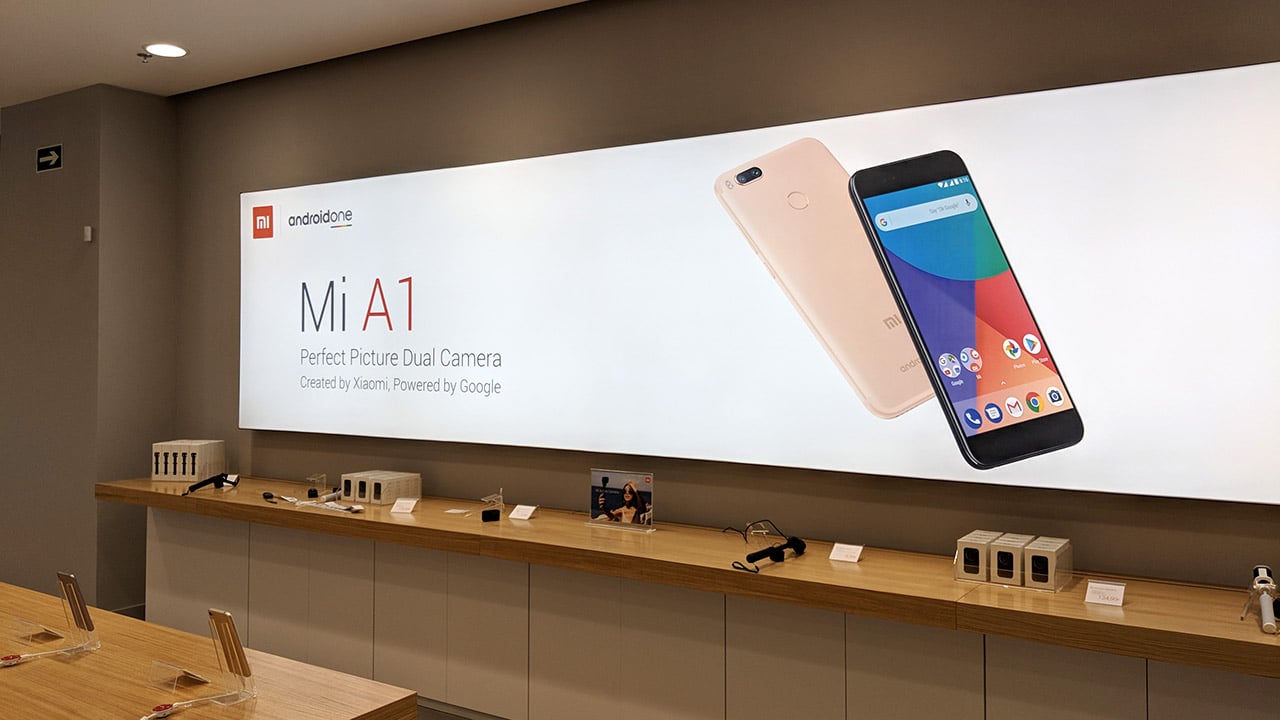India
Xiaomi rises to the top and continues to battle Samsung in India
Xiaomi’s persistence has paid off

Xiaomi’s efforts to bring their devices to more Indians continue to bear fruit. The Chinese company welcomes the new year with great news from analyst houses about smartphone market shares during the last quarter of 2017.
Both Counterpoint and Canalys pointed out a narrow lead for Xiaomi over Samsung in Q4 2017. According to Counterpoint, Xiaomi has a 25 percent market share compared to Samsung’s 23 percent; based on Canalys’ study, Xiaomi’s advantage over Samsung is 27 percent versus 25 percent.

With their dominance, Samsung and Xiaomi account for over half of all smartphones sales in India beating Lenovo, Vivo, OPPO, and other brands in the region.
On the other hand, year-long figures from Counterpoint showed that Samsung is still ahead of Xiaomi for the whole duration of 2017, but anyone can clearly see how the gap started to shrink over time. In 2016, Samsung and Xiaomi garnered 25 and 6 percent smartphone market shares, respectively. Xiaomi grew significantly in 2017, closing at 19 percent versus Samsung’s 24 percent share.

Even Canalys’ estimates from 2015 showed Xiaomi’s continuous growth in India while Samsung tried to maintain its own share.
Rushabh Doshi of Canalys explained that Xiaomi was able to seize the budget segment with their affordable Redmi series. But, Samsung is still holding on to their superior R&D and supply chain expertise to help them compete.
It was not Samsung who truly lost here, but rather the other smartphone brands who just can’t compete with Xiaomi’s bang-for-buck devices which have a great price-to-specifications ratio.


There’s no doubt that India is a major market for technology. While the country has its own brand preferences outside of the world’s usual, everyone still wants to get a piece of the market. To the dismay of global companies, the country is realizing the potential of its own market. Effective immediately, India has started restricting imports for new laptops, tablets, and PCs.
Recently, India made some headlines in the smartphone industry. A few companies, including Apple, have poured funds into building factories in India. Locally produced devices will allow these companies to attract the Indian market better. With the new regulations out today, it looks like these brands are going to enjoy a head start over others who aren’t in the country yet.
The Indian government introduced a new restriction (via Reuters) against the importation of “laptops, tablets, all-in-one personal computers, and ultra-small form factor computers and servers” made from other countries. Customers, however, will get an exemption. Airline passengers can still bring in these devices in their luggage. Additionally, a single imported device is allowable when bought through e-commerce platforms. Companies can import their products only by applying for a special license.
In a nutshell, bulk orders without a license are out. The government is instead encouraging users to buy locally produced products as part of its “Make in India” program. At the very least, it’s not a total ban on foreign brands. For example, Dell, HP, and Lenovo are exempt from the regulations since they already have production facilities built in the country.
SEE ALSO: Samsung overtakes Xiaomi as top phone brand in India

Attacking a huge smartphone market is difficult. With preferences constantly evolving, it can get tricky to figure out the best lineup to capture most of a market. Samsung, however, has just done it. In the last quarter of 2022, Samsung has taken the crown from Xiaomi as the bestselling smartphone brand in India.
India is an important market for most smartphone brands. It’s one of the largest markets in the world. However, despite its size, the biggest players are often those who offer more affordable devices for consumers. Budget is the name of the game if a brand wants to make it big in the country.
Things are changing, though. According to new market data (via Reuters), Samsung has nabbed the throne from the former leader, Xiaomi. In the last quarter of 2022, the Korean brand grabbed 20 percent of the market, while the latter only got 18 percent.
In a trend dubbed as premiumization, Indian consumers are reportedly enjoying more disposable income, resulting in more willingness to buy pricier products. Additionally, the report hints that consumers have started equating lower prices with inferior quality.
With the market trending towards more premium products, Samsung took the lead with a lineup that consists more of midrange to premium devices. It will also be interesting to see if Apple, an even more premium brand, can also make a dent in the Indian market.
SEE ALSO: Buyer’s Guide: Samsung Galaxy S23 Ultra

For one of the largest smartphone markets in the world, India is one of the rarer countries where Apple does not outright dominate. Undoubtedly, the company is trying to change that. Ongoing job listings in India are suggesting that Apple is ready to open its first brick-and-mortar store in the country.
First reported by Financial Times, Apple has posted job openings in India for several retail roles including for the iconic Genius Bar. Another clue even indicates that some spots have already been filled ahead of time. A few employees in the country have reportedly posted about their new jobs on LinkedIn.
Unfortunately, none of the job listings show how many stores are planned and where they will be. Narrowing things down by a bit, a few of the confirmed employees are from Mumbai and New Delhi. The report also does not indicate when the stores will open. However, since a few have already been hired, a grand opening might be coming soon.
Apple has a lot to gain by strengthening its foothold in India. The country is an important stronghold for smartphone companies. However, the company might find things harder as time goes by. The country recently dictated that brands must switch to USB-C if they want to sell their devices in India. All over the world, Apple remains the last stalwart against adopting the more universal standard.
-

 Accessories2 weeks ago
Accessories2 weeks agoApple Vision Pro Review: Two Months Later
-

 Features4 days ago
Features4 days agoFortify your home office or business setup with these devices
-

 Gaming1 week ago
Gaming1 week agoThe Rogue Prince of Persia looks like an ultra-colorful roguelite
-

 Deals2 weeks ago
Deals2 weeks agoSamsung Awesome April: Deals on Galaxy A series
-

 Philippines2 weeks ago
Philippines2 weeks agovivo Y100 to release in Philippines on April 27
-

 Gaming1 week ago
Gaming1 week agoStar Wars Outlaws release date revealed
-

 Accessories7 days ago
Accessories7 days agoLogitech unveils G Pro X 60 gaming keyboard: Price, details
-

 Deals7 days ago
Deals7 days agoTCL P635 TV: Big savings for TCL’s anniversary






















